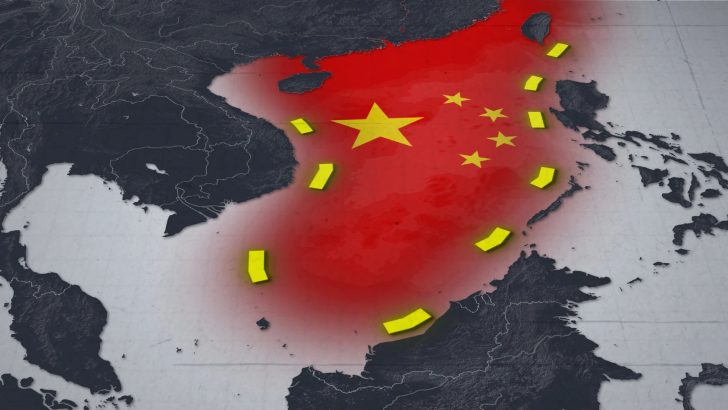The 50th G7 Summit, held on June 11, 2024, in Bari, Italy, ignited significant diplomatic friction. The G7 statement on the China South Sea controversy accused China of militarization and dangerous activities, sparking a fiery response from Beijing. China's response to the G7 statement on the South China Sea is fierce. Lin Jian, China's foreign ministry spokesperson, rebuked the G7's accusations. He described them as based on "lies and prejudices" and alleged they unfairly targeted China.
The South China Sea is a strategic and resource-rich waterway, with several countries laying claim to various parts. China, Vietnam, the Philippines, Malaysia, Brunei, and Taiwan all have competing territorial claims. These claims are primarily driven by the area's vast natural resources, including significant oil and natural gas reserves, and its critical maritime trade routes.
China's claims are the most extensive, based on the so-called "nine-dash line." A demarcation that covers most of the South China Sea. This claim, however, is not recognized by international law, particularly by the United Nations Convention on the Law of the Sea (UNCLOS). The tension has been escalating for years, with various countries engaging in naval skirmishes and diplomatic spats.

Today News / The group of seven said that they “oppose China’s militarization” and “dangerous activities in the South China Sea.
G7 Statement on the South China Sea Dispute
At the Bari summit, the G7 countries, comprising the U.S., France, Japan, Canada, Germany, Italy, and the UK, voiced strong opposition to China's actions in the South China Sea. They condemned the militarization and construction of artificial islands. Something that they believe threatens regional stability and international maritime law.
The G7's statement emphasized the importance of maintaining a rules-based maritime order and ensuring freedom of navigation.
This unified stance by the G7 underscores the growing international concern over China's assertiveness in the region. The statement aims to pressure China into conforming to international norms and reducing its aggressive posturing, which many view as a threat to global security.
China's Rebuttal to the G7 Statement on the China South Sea Dispute
The reaction of China to the G7 statement on the China South Sea was swift and stern. Lin Jian dismissed the G7's claims as unfounded and prejudiced. He argued that the G7's accusations were based on misinformation and aimed at undermining China's sovereignty and territorial integrity.
Lin emphasized that China’s activities in the South China Sea are legitimate and within its sovereign rights.

Zhe / Unsplash / Hitting back at the G7 Summit statement, Lin Jian, China’s foreign ministry spokesperson, said that these (statements) are based on “lies and prejudices” and that the statement “attacked China.”
China insists that its actions are defensive and necessary to protect its interests in the region. Beijing argues that its infrastructure projects, including the construction of artificial islands, are intended to enhance maritime safety and support peaceful development.
Similarly, China also accuses the G7 of hypocrisy. Thus, pointing out that many of its members have similarly engaged in military activities in international waters. Hence, the G7 statement on the South China Sea is crucial.
What are the Implications of the Dispute for International Relations?
The G7 statement on the China South Sea and China's vehement rejection highlights the deepening rift between China and the West. This dispute has significant implications for international relations and regional stability. The South China Sea is a flashpoint for potential conflict. It has the risks of military confrontations escalating if diplomatic efforts fail.
The G7's stance is likely to bolster support among Southeast Asian nations that oppose China's claims. This can lead to greater regional cooperation against Beijing.
However, it also risks pushing China to further entrench its position, leading to a prolonged and more intense standoff. The international community's challenge is to balance asserting the rule of law without provoking further escalation.








